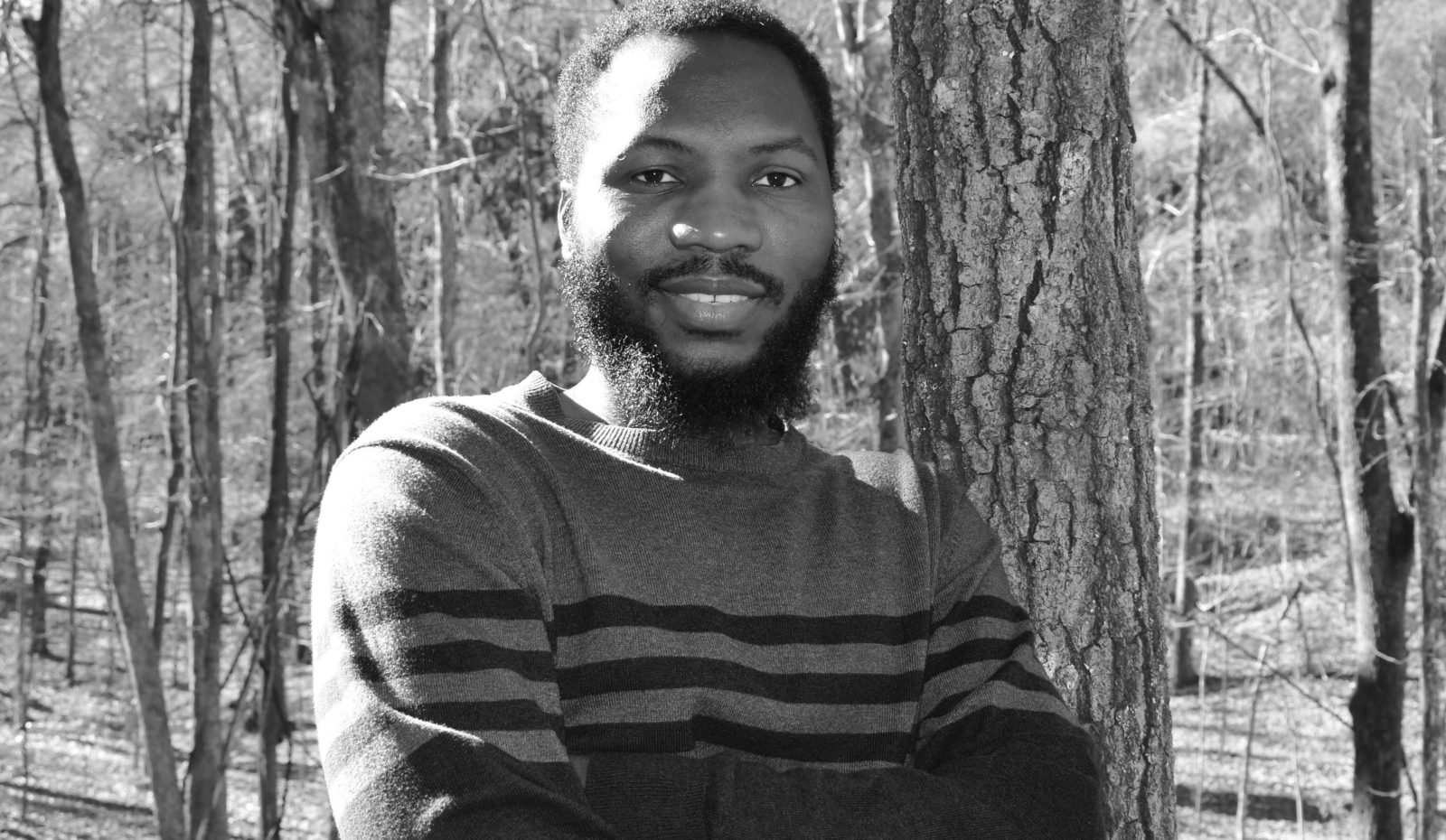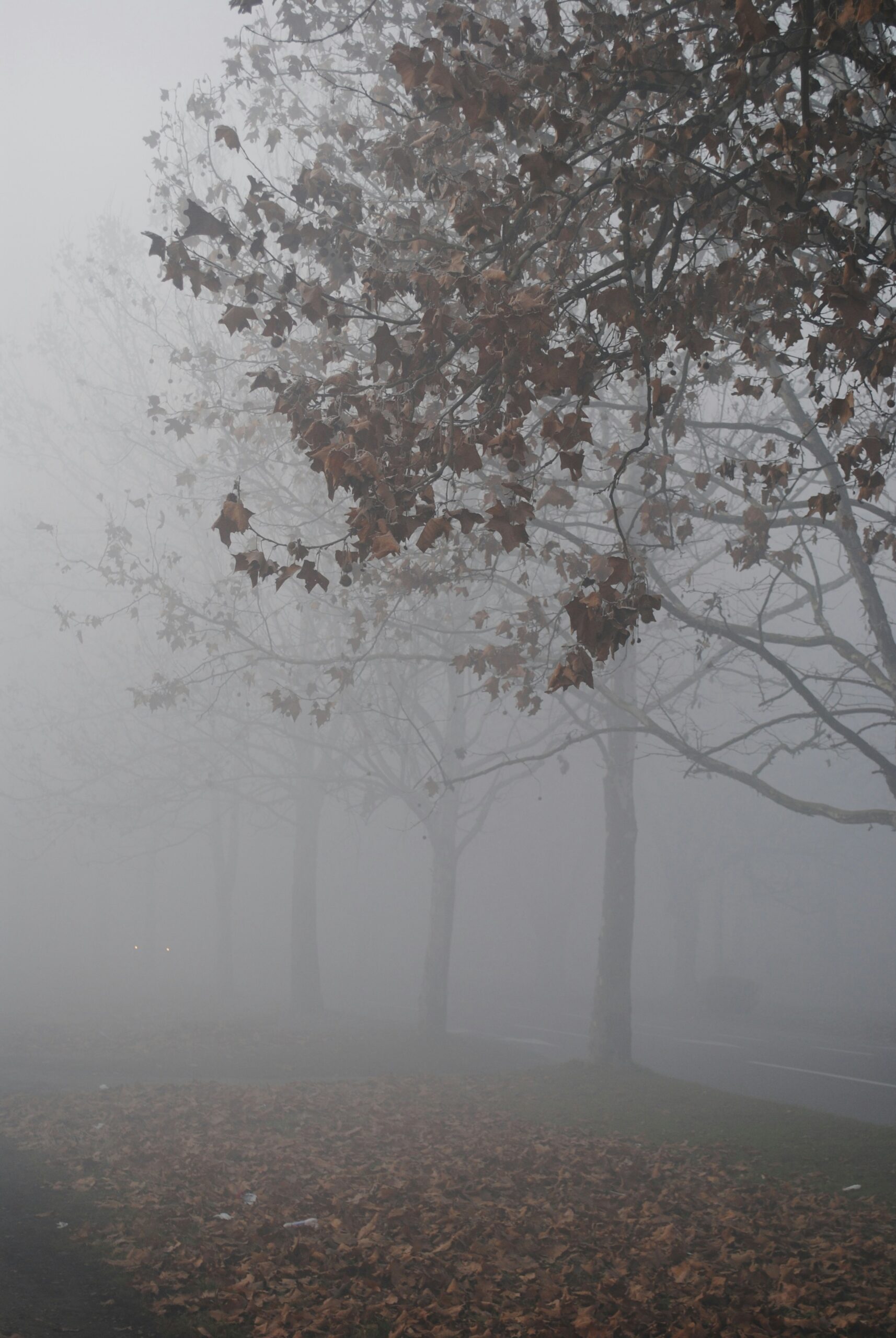Zakiyyah Dzukogi: What is the process of writing a poem like for you? Is it a lot of hard work or easy?
Hussain Ahmed: My process of writing a poem is both easy and hard work and I think it depend on the mood or the theme. I sit in front of my laptop and I stare until the first word pops. I am more fluent in my language of imagining the subjects of my poems mostly at night. I have a journal where I write several phrases, incomplete sentences, words I find fascinating, and it is from there that I start a good writing day. After writing like ten to twenty poems, I like to print them out, because errors I missed on my screen sometimes get figured out on paper. Excitingly, this process may depend on how long it takes to place the poem. There are poems I stopped working on because they were picked up by a journal and some others get edited when I read the published version. I would say, my process of creating poems is more of hard thinking.
Zakiyyah Dzukogi: Please describe your sense of identity in this or any possible world in imagery or metaphor?
Hussain Ahmed:
There is no end to the elasticity
of this dark field,
it never relies on the sun
to grow endless.
Zakiyyah Dzukogi: If any of your poems could literarily save a person’s life, which poem would it be, and can you describe the person whose life you think it would have saved?
Hussain Ahmed:
COSMOLOGY OF THE CLOUD WITH BABA AS THE RAIN MAKER
I.The sky is a rolag, carded with grief and dew.
We were made in the image of our dead –
because God relies on recycling
to keep the earth going around the sun.
I believe that all my poems can save my own life, because they free up my imagination to think of what does exist and what may be abandoned. If a poem of mine is capable of miracle, I’ll want this poem to save the world’s oceans and seas from plastic and reverse the shrinking of Nile.

Zakiyyah Dzukogi: What does Africa mean to you, as potential or reality?
Hussain Ahmed: Africa is a continent of many great minds; her potentials are in her realities.
Zakiyyah Dzukogi: Could you share with us one poem you’ve been most impressed or fascinated by? Tell us why and share your favourite lines from it.
Hussain Ahmed:
Abecedarian Requiring Further Examination of Anglikan Seraphym Subjugation of a
Wild Indian Rezervation
by Natalie Diaz
Angels don’t come to the reservation.
Bats, maybe, or owls, boxy mottled things.
Coyotes, too. They all mean the same thing—
death. And death
eats angels, I guess, because I haven’t seen an angel
fly through this valley ever.
I like this poem for several reasons which include the fact that it is an Abecedarian and I know how difficult it is to create one that doesn’t read like forced sentences sewn together to fulfil no purpose. The language is one of empowerment and the freshness in the speaker’s voice is one that makes it read like a prayer by a commander, to warriors just before their
victory.
Hussain Ahmed is Nigerian, poet, and environmentalist. He holds an MFA in poetry from the University of Mississippi. His poems are featured or forthcoming in A Public Space, Poetry Magazine, The Kenyon Review, Denver Quarterly and elsewhere. He is a 2021 Semi-finalist Cave Canem Poetry Prize, 2022 Finalist for the University of Wisconsin Press’s Brittingham Prize and Felix Pollak Prize poetry competition, and several others. He is the author of a chapbook “Harp in a Fireplace” (Newfound, 2021) and a debut collection “Soliloquy with the Ghosts in Nile” (Black Ocean Press, 2022). He is an Editorial Assistant for Seneca Review.
Add Your Heading Text Here
- Poet’s Talk: 5 Questions with Nasiba Babale - September 5, 2023
- Poet’s Talk: 5 Questions with Ibraheem Uthman - August 29, 2023
- Poet’s Talk: 5 Questions with Zakiyyah Dzukogi - August 19, 2023












Leave a Reply